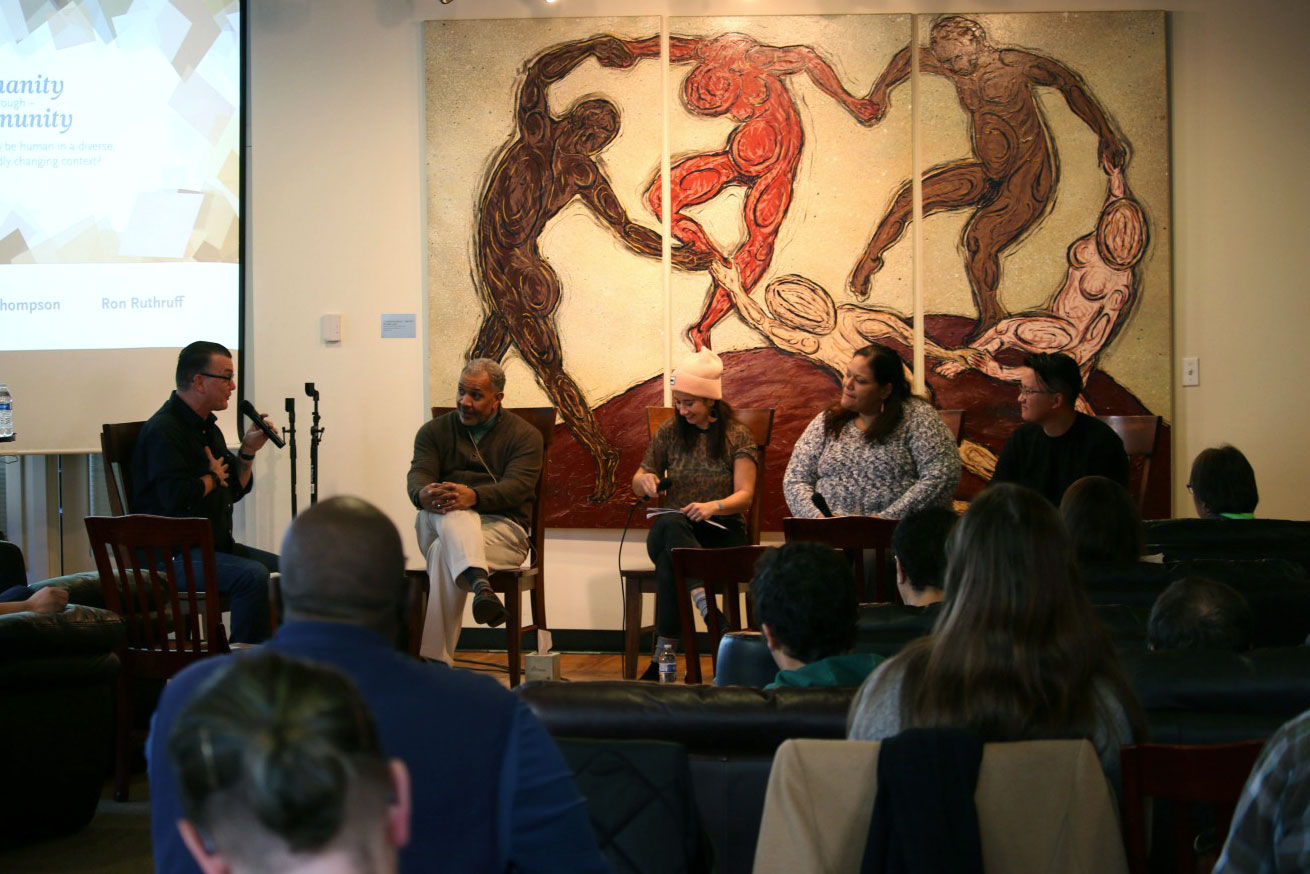Earlier this year, we were thrilled to welcome Jimmy McGee, President of the Impact Movement, as the keynote speaker for Humanity Through Community. This year’s theme was “The Myth of the Single Story,” and Jimmy offered powerful insights and a bold invitation for us to engage the humanity in each other in a way that acknowledges and affirms the goodness of God’s creation. The full video of his talk is available here.
After the keynote lecture, Humanity Through Community continued with a vibrant panel discussion, which we are featuring here. Joining Jimmy on the panel were Lina Thompson, pastor of Lake Burien Presbyterian Church, a church committed to engaging the changing demographics of its community with curiosity, creativity, and care; Lisa Etter Carlson, co-founder of Aurora Commons, the “neighborhood living room” for unhoused friends and neighbors along Seattle’s Aurora Avenue; and Richard Kim, Intercultural Credibility Coordinator at The Seattle School. The discussion was moderated by Dr. Ron Ruthruff, Associate Professor of Theology & Culture.
Ron: “In order to incorporate some of these other stories, what do we all do, as a community of faith, to coach, or mentor, or support the dominant culture in unlearning? How do we help them—us—in unlearning the story that I assume is the grand narrative, when it’s not?”
Jimmy: “The first thing I would say is that you’ve got to get back to the Creation story. So the reality that God made me black, it’s also true that God made you white. It’s a fact that you were created white, so we need to get to that piece. The part that’s problematic is that white people have an inflated sense of self, and most people of color have a deflated self. So it needs to be recalibrated, but that’s a work that needs to occur on an ongoing basis. There’s no salve, there’s no pill, it’s a process. Because we’ve had an accumulation of time that has created this reality, that has perpetuated this truth. So this is something that we have to engage actively.”
There’s no salve, there’s no pill, it’s a process.
Lisa: “We have a lot to unlearn. We don’t know how to need one another—especially in our communities. We don’t know how to live as though we belong to one another. I think that is one of our greatest callings as people of faith, to live into this Christian imagination—and it does take so much imagination.”
Lina: “I think the church has been so inept. We’ve perpetuated the idea that people come and we have to give them something, when actually people come with something to give. So when we don’t think that every person in this community has something to give to the worship experience, then we are taking something away from what God has designed as public space and public worship.”
The conversation touches on the life of Dietrich Bonhoeffer, who was profoundly shaped by the black community in America before returning to Nazi Germany, as well as the pivotal films Eyes on the Prize and Freedom Summer. The panelists also reflected on what it means to bring their full selves and their own stories into this conversation, and to grow a theology that celebrates the full humanity of every person.
Jimmy: “The theological narratives need to change. […] The narrative of testimony is lost.”
Richard: “I didn’t know a God that fit my body until much later in my spiritual journey, primarily because I would only be moved if I saw somebody else being moved by the Spirit. I would only feel the presence of God when I peeked over and saw someone else displaying what that looked like for them. I didn’t know my story. Partly out of just a willful ignorance of the history of my people, like Jimmy mentioned in his talk, but also just a clear, rational, everyday sense that I had no proximate experiences of people, mentors, leaders—regular, casual encounters with people who looked like me. So I couldn’t imagine who I was in that space, I couldn’t develop a sense of my own story because I felt like the anomaly.”
You can watch the full video of the discussion below.

